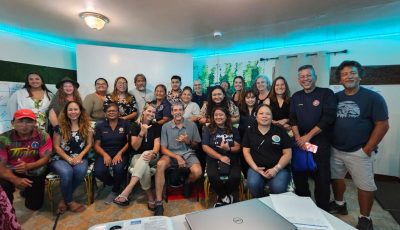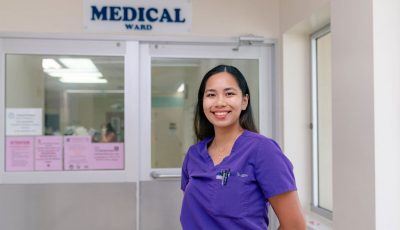CHC sees 7 cases of hand, foot, and mouth disease
The Commonwealth Health Center’s emergency department has confirmed seven cases of a viral illness known as hand, foot, and mouth disease. So far, no cases have been identified since Oct. 20.
According to webMD.com, hand-foot-and-mouth disease is an illness that causes sores in or on the mouth and on the hands, feet, and sometimes the buttocks and legs. The same website clarified that it is not the same as other diseases that have similar names: foot-and-mouth disease (sometimes called hoof-and-mouth disease) or mad cow disease. These diseases almost always occur in animals.
Five of the eight diagnosed cases of HFM disease affected children under 5 years old, which comprises 63 percent of the total diagnosed cases that were reported by CHC this month.
Although usually common among children, adults may also catch the contagious disease.
The HFM disease is most contagious during the first week of the illness.
There are no vaccines for HFM disease, but there are limited consequences to those that acquire it. HFM disease symptoms may include fever, reduced appetite, and a sore throat. Once the fever subsides, uncomfortably painful sores may develop in the mouth. Also known as herpangina, they are usually located at the back of the mouth that starts out as small blisters before gradually turning into oral ulcers. Skin rashes and blisters may also appear on the palm of the hands, soles, and feet.
Instances where no symptoms are present may occur and the virus may still be transmitted.
The Commonwealth Healthcare Corp. suggests that washing hands often with soap and water is efficient in reducing the risks of being infected. Disinfecting toys and other surfaces that are frequented by the hands should also be considered.
The CHCC recommends avoiding close physical contact, including kissing, hugging, or sharing utensils with individuals expected to have HFM disease.
To relieve the painful mouth sores and fever, over-the-counter Tylenol, Ibuprofen, and mouthwash or mouth sprays that numb the pain may suffice.
CHCC carefully reiterates that children are not to be given aspirin.
If diagnosed with HFM disease, CHCC recommends staying at home and consulting a doctor whether or not it is safe to return to work or school.
For more information, contact CHCC at (670) 236-8201/2 or visit the U.S. Centers for Disease Control and Prevention website at http://www. cdc.gov/hand-foot-mouth/index.html.



























